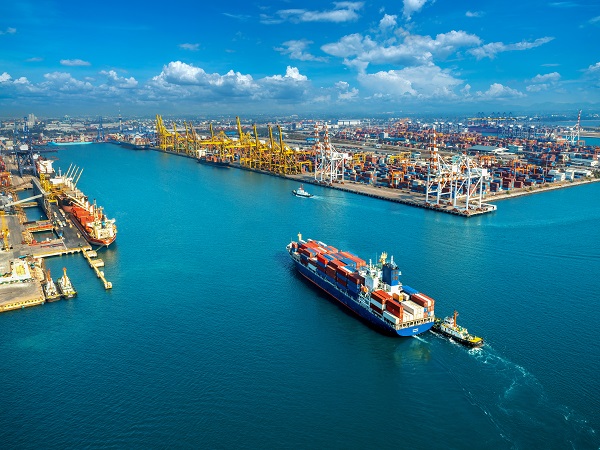India’s economy has registered reasonable growth in the last decade, one vivid example showing the country’s boost is the steadily increasing role of the export sector. This vibrant transformation has been most notably seen in the growth of the Indian startup ecosystem which is inarguably classified as a global contender. The growth story from small Indian startups exporting a few textiles to becoming leaders in the textile exporting industry is a success story of this progress. All these transformations are achieved by quickly advancing technology, effective government policies, and a talented workforce.
Export performance in India and economic growth is interrelated because of the older historical importance of entrepreneurship in the country. The business acumen in India runs deep in the annals of history where India was a hub for trading activities and commercial centers were highly developed. There are numerous communities in India where entrepreneurial genes and risk-taking abilities are very prominent. This background outlines the specifics of modern economic activity and the development of new ideas.
The current scenario reveals that the Indian startup ecosystem has evolved in the past few years with three generation waves of entrepreneurial activities. Every wave contains the different types of businesses and ecosystems which have been built under the impacts of social, regulatory, technological, economic, and cultural contexts. Out of the mentioned waves, the current wave is significantly notable due to the B2B models and deep technology and intellectual Property based innovations. Gradually, startups are presenting their products and services in a specific field with global perspectives in an attempt to solve intricate problems and target the global market.
ExportersIndia.com is another progressive leader involved in the B2B business. ExportersIndia.com is one of the largest B2B marketplaces where buyers from across the globe come to source products from Indian exporters. This has become the hub through which firms get access to the international market for exposure, contacts, and business relationships for service provision, product marketing, and sales, amongst others.
Over 60K active startups today run in India in a country that is charting to becomethe third-largest startup base globally – and operate across sectors like fintech, ed- tech, SaaS. These government schemes such as Startup India and Digital India have great utility in this growth where funding and some physical infrastructure are of paramount importance.
By 2023, the internet user base is likely to reach over 850 million in India which can turn out to be one of the biggest domestic markets in the world and point to representation of international ambitions. A few examples include Ola Electric, Freshworks, and Zomato are the examples of how Indian startups are looking globally and ready to carve a niche for themselves on the global map. Based on the experience of these companies, Indian startups are ready to become the leaders of the progress in technologies in the world, if they will receive the governmental support and access to the funds for the development.
It was found that Indian startups’ competitive advantage is in improving efficiency and innovation through technology and sustainability. Its factors include environmental, societal, and fiscal variables. This involves taking into account Environmental, societal as well as fiscal factors. To take the real-life example, the exporters must lean to sustainable manufacturing, waste minimization and supply chain efficiencies for cutting emissions. Considering sustainability as a core concept, Indian startups are able to increase their competitive advantage and attract the global market that focuses on sustainable approaches.
Furthermore, it should also be noted that the performance of the export sector depends on both national and international conditions. The performance of India in exporting its goods and services to other countries is influenced by major aspects within its domestic economy and globally, these include; performance in ease of doing business and other global trade agreements. Thus, the export strategy can make India’s exporters achieve sustenance, development, and networking for individual firms and the overall economy, technology development, and international partnership and cooperation.
The evolution of the Indian startup ecosystem from the environment that gave birth to idea to the one that is nurturing some of the world’s most innovative startups is a fascinating one. This is an unceasing story of innovation and spearheaded by policy mechanisms and most importantly, a qualified population. The Indian government has been very active in supporting the ecosystem for the startup through its programs like Startup India in this transformation. These initiatives enable startups to arrive at the necessary resources, and knowledge as well as financial backing they need in order to incite and grow.
In addition, currently, there are increasing numbers of technological ventures in India which show that the markets become more specialized and competitive. Most new ventures are now featuring the creation of intellectual property (IP) and coming up with innovative high technologies that are relevant to the world market. This is an evident trend with the market bearing the capacity in contributing to the home economy as well as carving a niche in the global market.
One of the prominent features of this evolution type is the factor of technology in increasing the productivity and success rates of organizations. Today’s Indian startups are applying such technologies as AI, machine learning technologies, blockchain technology, IoT technologies, etc. Thus, these technologies are not only assisting startups to find solutions to complicated issues but also allowing them to level the playing field in the global market.
For example, in the fintech sector, the startups are coming up with solutions which focus on opening access to basic financial services, creating efficient financial solutions to conduct transactions and also enhancing security. In the ed-tech industry, what business people are developing are platforms that provide good education to the students within and outside their region. Likewise, in the SaaS segment, Indian startup companies are now providing software solutions that can be demanded by business entities globally.
The best expositions to the information are such points: Today, Indian startups are successfully participating in the global market, and it indicates the increase of the country’s role in foreign trade. The expanding businesses across the borders in India are positively happening to the country by boosting its export figure and also further strengthening the country’s image as a hub of innovation and start-ups. The following are some of the factors that make it possible to extend the operations of the company across the globe; Current and favorable trade relations in global markets help in opening new markets of Indian services and products.
Hence, it can be concluded that India’s economic growth over the past decade has been significantly fuelled by the dynamic expansion of its export sector, particularly through the rise of the Indian startup ecosystem. Indian startups’ successful participation in the global market enhances the country’s role in foreign trade, boosts export figures, and solidifies India’s reputation as a hub of innovation and entrepreneurship.




